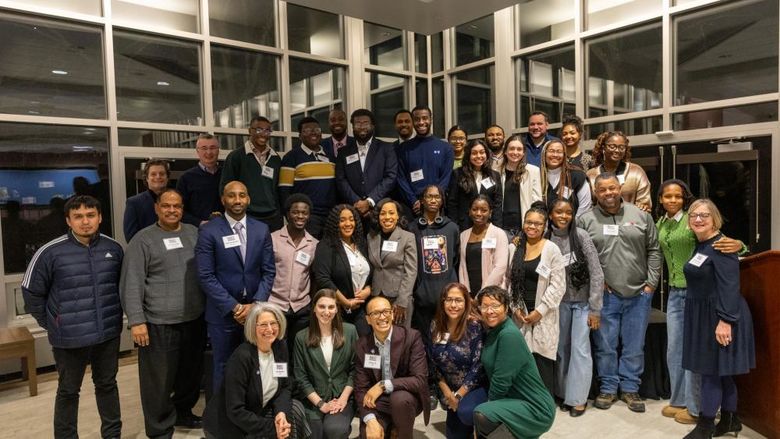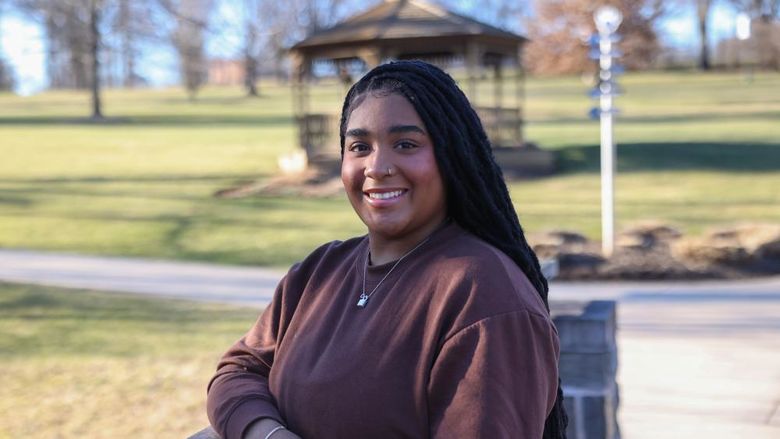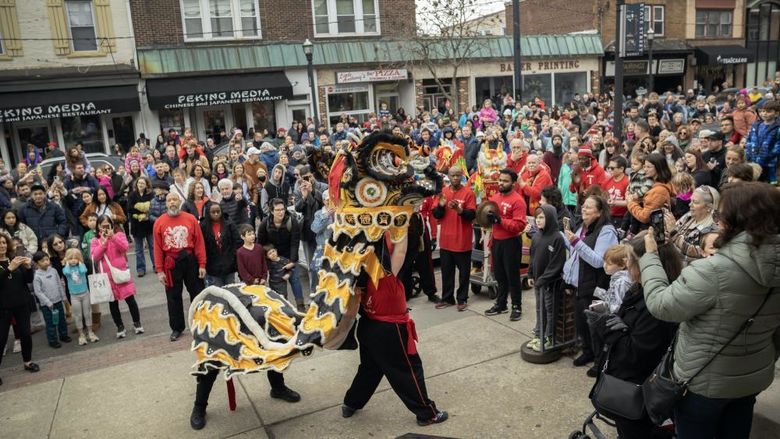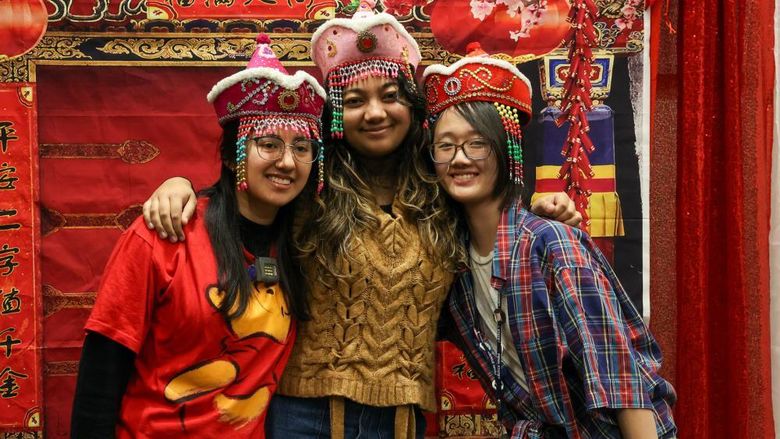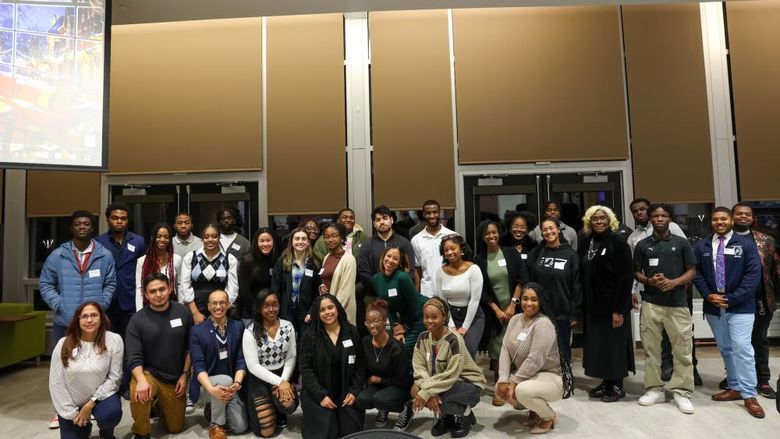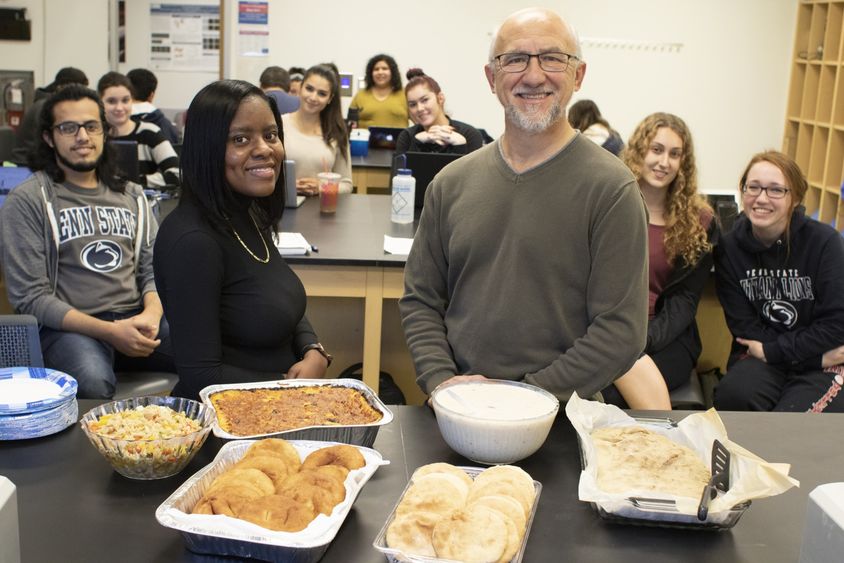
Junior biology major Kennesha Busby (left) shares cuisine that reflects her culture and heritage with classmates through a course taught by Associate Teaching Professor of Biology Mark Boudreau (right).
A Penn State Brandywine biology course that focuses on human use of plants features “food for thought” — literally — with students bringing samples of cuisine that reflects their culture and heritage to share with classmates.
“We spend a lot of time discussing scientific articles, but there’s a lot of history and economics and ethnobotany in the class too because it’s about the history of how people use medicines from plants, where coffee comes from, and who first processed and traded it,” said course instructor Mark Boudreau, associate teaching professor of biology.
“I figured that in a small class, talking about how different cultures use plants, and talking about scientific papers, we could add to the class by having students bring in foods from their culture,” he said. “We get some interesting foods that reflect the diversity at Brandywine.”
As junior biology major Kennesha Busby planned for her assigned day to bring food for the class, she reached out for a little help — from Mom. Catherine Emmanuel, Busby’s mother, flew in from their native country of Anguilla, an island which is located east of Puerto Rico and the Virgin Islands, to help prepare the meal.
“I was talking to her on the phone and told her about the assignment to bring in food,” Busby said. “She knows how hectic my semester is, so when I told her I wasn’t sure how I was going to do it, she decided to come help.”
“I love to cook,” said Emmanuel, who enjoyed a weeklong visit with her daughter. “I like to deal with food, come up with new ideas, make everything from scratch, and prep everything on my own.”
Busby and Emmanuel said they tried to select dishes that most people would want to try. They chose johnnycakes, which are baked; fried cakes; macaroni pie, which is baked macaroni with melted cheese on top; and stewed salt fish. They were able to find the ingredients they needed at a local grocery story and at a market in Philadelphia that specializes in African foods.
Sharing various foods “is a fun part of the class,” said Busby, who is president of the campus’s multicultural club. “We talk about the ethnographic use of plants and that’s why we bring cultural foods. It gives us the chance to taste foods from other countries.”
Most of the foods are vegetarian and if a student brings a meat-based dish, a vegetarian option must be provided as well. The day Busby brought her Caribbean samplings, two other students brought rice pudding and apple strudel.
Boudreau said he designates days when the class is discussing papers as food days, which helps to create a more informal environment for conversation among the students. Those sessions often include a quiz as well.
“Besides just having fun and exposing students to food they haven’t had, it creates a more relaxed atmosphere for discussing papers,” he said.
“I’m surprised at the effort they go to,” Boudreau added. “We rarely get something that doesn’t require some effort. I’ve seen some fairly generic things and I’ve seen some stuff I’ve never heard of that’s delicious. It’s bona fide cooking.”
